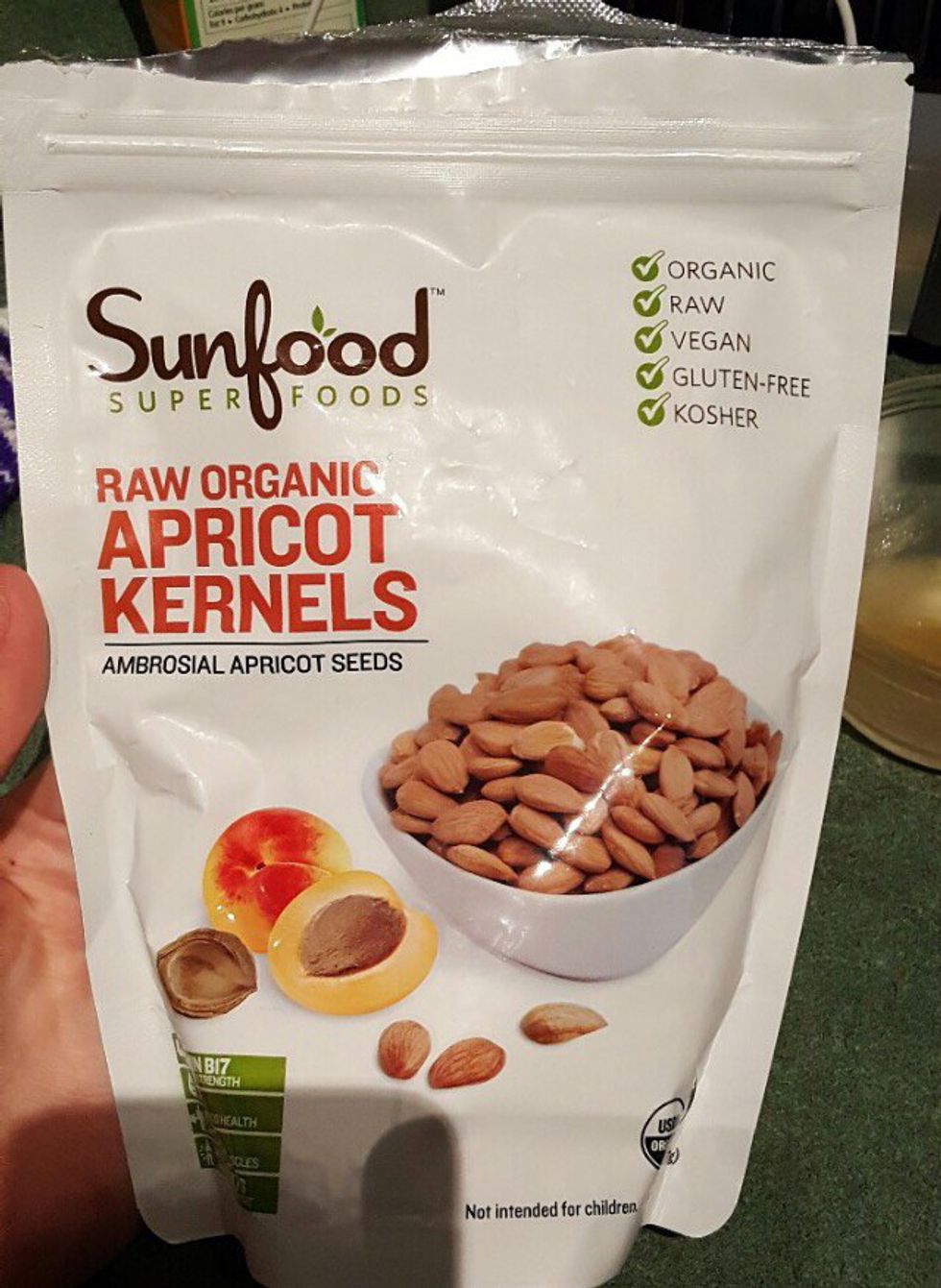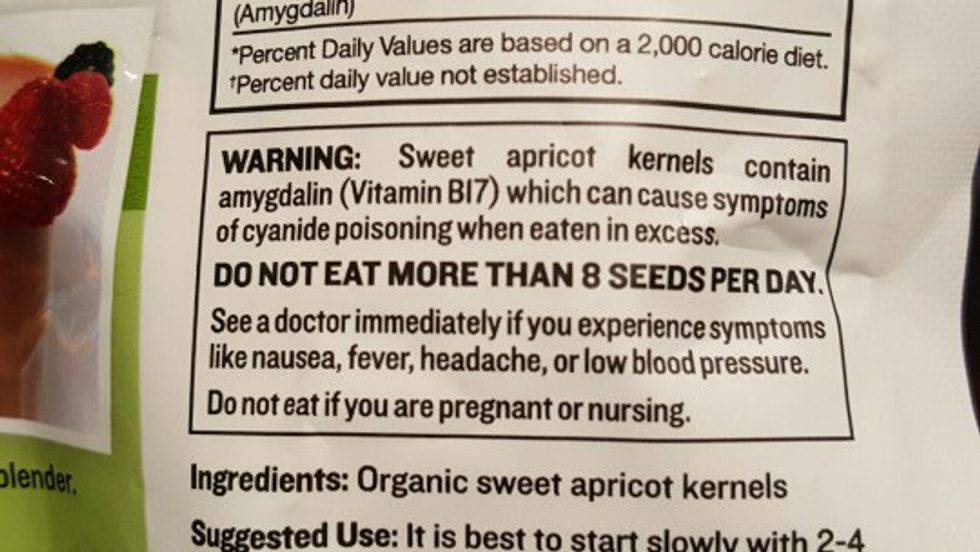If you have been to a health food store in the past decade, you may have noticed a consistent theme: trying to be all-natural. The phrases "natural" and "organic" pop up on the products, on signs next to the products, on banners and in plenty of other places. Oftentimes, it's implied that products with these labels are healthy because they are "natural" instead of being "artificial" or "processed."
Of course, what these labels may neglect to mention is that not all "natural ingredients" are healthy. Let's take this product as an example…
See if you can spot what is wrong with this bag of organic, raw, vegan, gluten-free, kosher Sunfood SuperFoods apricot kernels:
That's right. If you eat more than eight seeds per day of this magical organic superfood, you could literally get cyanide poisoning. Have fun dying from your organic and natural cyanide poisoning that is available at health food stores near you.
While this marketing strategy might have become increasingly popular over the past decades, it is nothing new. The tobacco industry has been using it for almost eighty years. In the 1930s, tobacco companies described their cigarettes as "pure tobacco" with "no artificial flavors or additives" to try and market them as healthy. They claimed that cigarettes without "artificial flavors" would cause less throat irritation, which was one of the only health concerns associated with tobacco at the time.
Nowadays, we know that smoking cigarettes causes plenty of health problems besides throat irritation. We also know that "natural" tobacco is no healthier than tobacco with "additives" and "artificial flavoring." Because of these facts, the cigarette company American Spirit -- which has upheld the tradition of trying to market itself as a "natural" cigarette brand -- was forced to include, on its advertisement which encourages you to "try the true authentic taste of Natural American Spirit 100 percent additive-free," this revealing label:
What this whole issue boils down to is the Appeal to Nature logical fallacy: it is illogical to claim that something is healthier or morally better simply because it is natural.
The idea that "natural" means "healthy" is easily debunked not only by the previous examples but by the way human health has improved over time. Back in the days where people ate natural, organic food instead of that gosh-darn artificial stuff that's chock-full of bad evil chemicals, people had lower life expectancies, higher death rates and higher childhood mortality. To be fair, this has primarily changed because of advances in modern medicine, but that only reinforces the point: most of modern medicine isn't really "natural" either.
Advocates of pseudoscientific "alternative medicines" have actually used that last point to criticize modern medical practices like vaccination, saying things like "I think we're just messing with nature." First of all, despite the claims of "anti-vaxxer" conspiracy theorists, the evidence clearly shows that vaccination is safe. Second of all, before we started "messing with nature" with vaccines and other modern medical practices, we had fun stuff like the Black Plague and the Spanish Flu which caused tens of millions of slow and painful deaths:
Ah, natural living! There’s nothing more natural than dying of infectious disease in huge numbers. That Gaia, she’s a harsh mistress, and, personally, I’m all for keeping her from killing me and large numbers of my fellow humans through her indifference ... We’ve had hundreds—nay, thousands—of years to see the results of “natural treatments.” Those results are epitomized by epidemics of bubonic plague, cholera, and all manner of diseases that are now treatable or preventable.
Another form of the Appeal to Nature fallacy is claiming that some behavior or trait is moral because it is natural or immoral because it is unnatural. For example, some have claimed that homosexuality is immoral because they think it is unnatural. It's not actually unnatural, but that is besides the point -- their argument is "it is unnatural, therefore it is immoral."
The boring and technical way to refute this kind of argument is by killing it with Hume's guillotine and pointing out that it jumping straight from an "is" statement ("this is natural") to an "ought" statement ("we ought to do/be this") is illogical. On the other hand, it may be easier to crush the argument by reminding whoever is using it of what nature is really like, in all of its gory detail:
The entire fallacy of using nature to justify a moral standpoint can be clarified by pointing out that Nature Is Not Nice; it's rife with disease, natural disasters, parasites, predators, murder, rape ... and other ghastly things, while on the other hand, "unnatural" civilization gives people the means to behave more morally, to conceive and develop ethical philosophy, and lower the historically horrendous rates of human mortality and suffering dramatically.
If someone wants to argue that "natural" means "good" and "unnatural" means "immoral," they can have fun believing that disease, natural disasters, parasites, predators, murder, and rape are morally good. So, to put it simply, "natural" does not mean "good" in any sense of the word.
For more information on this subject, check out some of the following resources:
Skeptical OB: "No, Natural Is Not Better"
Rational Wiki: "Appeal to Nature"
Logical Theology: "Appeal to Nature Fallacy"
NHS: "Alternative Medicine Dange for Children"























